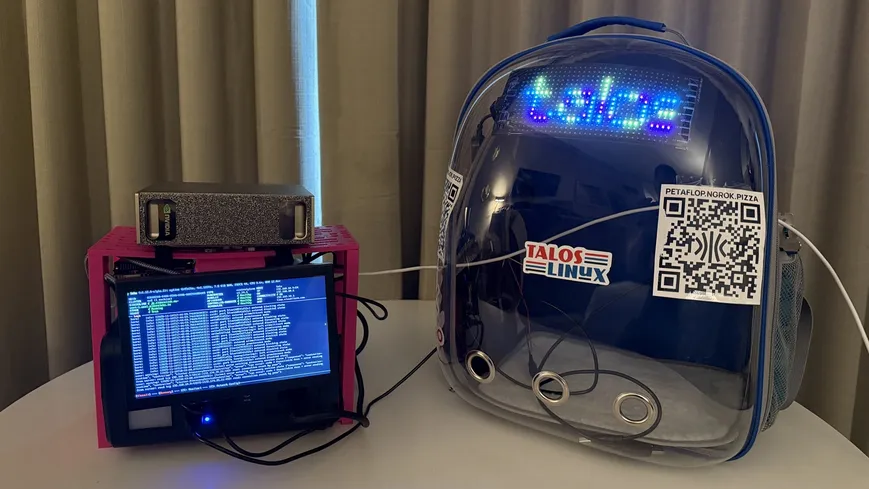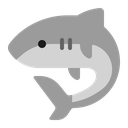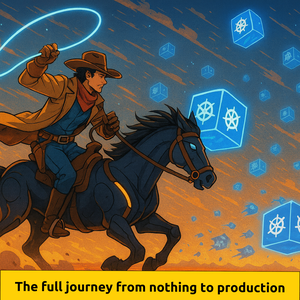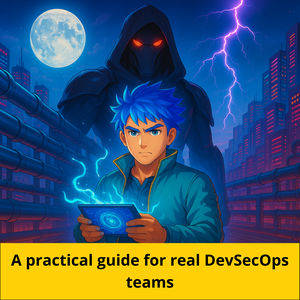
TL;DR
Engineer Justin Garrison showcased a backpack-sized PETAFLOP Kubernetes cluster at KubeCon 2025, demonstrating localized AI capabilities without cloud reliance.
Key Points
Highlight key points with color coding based on sentiment (positive, neutral, negative).An innovative project showcased at KubeCon 2025 involved a backpack-sized PETAFLOP Kubernetes cluster, highlighting the potential of portable AI systems running Kubernetes at the edge without cloud reliance.
The cluster utilized a NVIDIA DGX Spark as the AI compute node for local image-to-image inference, demonstrating the capability of running AI workloads entirely on-device.
The control plane was managed by a LattePanda, which handled Kubernetes operations and a lightweight AI-powered frontend, allowing for a fully functional two-node cluster setup.
Connectivity challenges were significant, with unreliable conference Wi-Fi and hotspot tethering issues; USB phone tethering provided the most stable solution for maintaining network connectivity.
The project emphasized practical aspects such as mobility, power management, and airflow, with a 60,000 mAh portable battery providing around 3 hours of runtime, showcasing the feasibility of personal AI clusters.
At KubeCon 2025, engineer Justin Garrison introduced something that caught quite a few eyes: a PETAFLOP Kubernetes cluster that you can actually carry around in a backpack. Yes, you heard that right. This nifty setup, tucked inside a modified cat carrier, is a two-node cluster powered by a NVIDIA DGX Spark and a LattePanda-based control plane. The DGX Spark does the heavy lifting as the AI compute node, running ComfyUI for image-to-image inference. Meanwhile, the LattePanda takes care of the Kubernetes control plane and a lightweight AI-powered frontend. Attendees could get in on the action by scanning a QR code, snapping a selfie, and voilà - they'd get a cartoon version of themselves, all processed right there on the spot, no cloud needed.
This cluster weighs in at about 25 pounds and runs on a 60,000 mAh portable battery station, giving you around three hours of juice per charge. The DGX Spark, while powerful, isn't exactly shy about its power consumption and heat output. It needed a solid cooling system, complete with side-mounted intake fans and transparent vents. Connectivity? Well, that was a bit of a headache. The conference Wi-Fi was spotty, and hotspot tethering wasn't much better. In the end, USB phone tethering turned out to be the most reliable option. Inside, a GL-iNet AC1300 router handled the Kubernetes networking and remote access.
This project is a peek into the future of portable AI systems running Kubernetes at the edge. It shows off the potential for localized AI capabilities without leaning on datacenters or cloud services. Garrison's creation isn't just a technical achievement; it's a conversation starter, highlighting the practical uses of personal AI clusters. Even with its playful vibe, the project points to a growing trend of self-contained AI systems that can operate independently in all sorts of environments.
Key Numbers
Present key numerics and statistics in a minimalist format.The weight of the entire backpack-sized PETAFLOP Kubernetes cluster setup.
The capacity of the portable battery station powering the cluster.
The runtime per charge provided by the portable battery station.
The power consumption of the NVIDIA DGX Spark at idle.
The number of nodes in the Kubernetes cluster setup.
Stakeholder Relationships
An interactive diagram mapping entities directly or indirectly involved in this news. Drag nodes to rearrange them and see relationship details.People
Key entities and stakeholders, categorized for clarity: people, organizations, tools, events, regulatory bodies, and industries.Designed and built the backpack-sized PETAFLOP Kubernetes cluster demonstrated at KubeCon 2025.
Organizations
Key entities and stakeholders, categorized for clarity: people, organizations, tools, events, regulatory bodies, and industries.Provided the DGX Spark used for AI compute tasks in the portable Kubernetes cluster.
Supplied the control plane for the Kubernetes setup in the portable cluster.
Collaborated in facilitating mid-day recharges of the portable battery during the demonstration.
Tools
Key entities and stakeholders, categorized for clarity: people, organizations, tools, events, regulatory bodies, and industries.Used for AI compute tasks in the backpack-sized Kubernetes cluster.
Events
Key entities and stakeholders, categorized for clarity: people, organizations, tools, events, regulatory bodies, and industries.The venue where the backpack-sized PETAFLOP Kubernetes cluster was demonstrated.
Timeline of Events
Timeline of key events and milestones.At KubeCon 2025, Justin Garrison showed a wearable Kubernetes cluster built with a DGX Spark and a LattePanda. It generated stylized images entirely on-device, highlighting both the promise and the practical challenges of portable AI and edge Kubernetes.
Additional Resources
Enjoyed it?
Get weekly updates delivered straight to your inbox, it only takes 3 seconds!Subscribe to our weekly newsletter Kaptain to receive similar updates for free!
Give a Pawfive to this post!
Start writing about what excites you in tech — connect with developers, grow your voice, and get rewarded.
Join other developers and claim your FAUN.dev() account now!
FAUN.dev()
FAUN.dev() is a developer-first platform built with a simple goal: help engineers stay sharp withou…

Kaptain #Kubernetes
FAUN.dev()
@kaptainDeveloper Influence
9
Influence
1
Total Hits
122
Posts
Related tools
Featured Course(s)

Observability with Prometheus and Grafana
A Complete Hands-On Guide to Operational Clarity in Cloud-Native Systems

End-to-End Kubernetes with Rancher, RKE2, K3s, Fleet, Longhorn, and NeuVector
The full journey from nothing to production

















